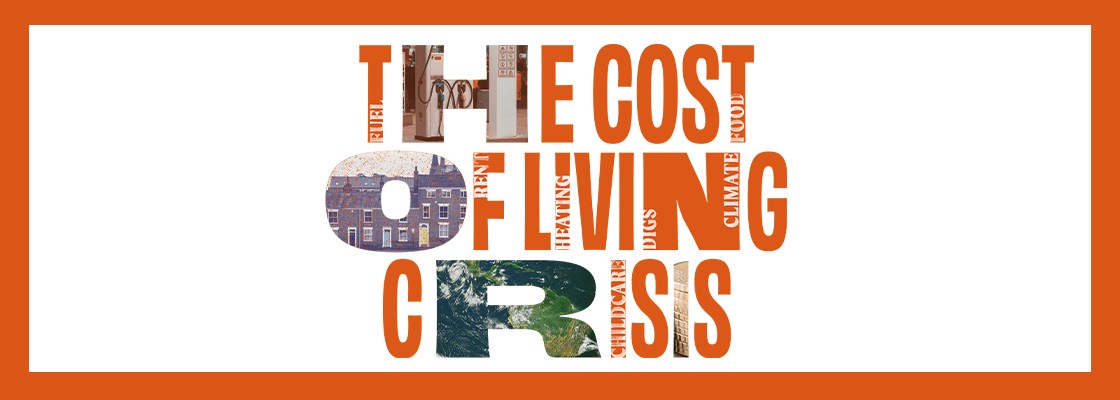Cost of Living Crisis - A vicious circle for the theatre industry
29th June 2022Since early 2021 the cost of living has been increasing across the UK and we are currently facing the highest rates of inflation since 1982. With energy bills and fuel prices soaring and food inflation at a 13-year high, we are really feeling the hit when our incomes aren’t matching the increase.
It’s no different for the theatre industry and its workforce.
In a recent survey by Equity UK on 306 of its members, it found that a fifth of them believe they will have to leave the industry because of the cost-of-living crisis. This is devastating. Have we not already lost enough through the pandemic?
Other results from the survey include:
- 47% have experienced difficulties in meeting essential costs during the period 2021-22.
- 33% have seen an increase in their personal debt in the last year.
- 41% feel negative about their future work prospects over the next 12 months, compared with 24% who feel positive.
- 70% of members are currently or will need to work more hours/days to cope with essential living costs.
- 89% think those on low incomes and artists from working class backgrounds will be forced out of the industry.
- 72% think more pressure will be added on young artists, new entrants and graduates.
- 65% think it’ll be harder for marginalised groups, including women, black, and deaf and disabled artists.
You can see the full results here. https://www.equity.org.uk/news/6-out-of-10-performing-artists-will-struggle-with-essential-costs-due-to-the-cost-of-living-crisis/

Equity continues to challenge the Government and demands that it does more to protect its members and the theatre workforce from the ‘debilitating impacts of the cost of living crisis’. It aims to secure funding from the government that is then ring fenced specifically for pay increases within the industry.
Equity, along with a fellow trade unionists, artists and community groups, rallied in Parliament Square, London on Saturday (18th June) to make a stand and fight for the right to #DemandBetter. You can find out more about Equity’s march on their Twitter page.
Paul W Fleming Equity General Secretary, said: "It’s the Government stepping up to end austerity, to use taxpayer money to tackle the cost of living, support the creative industries to fully recover from the pandemic and fund public services. Equity’s members are tired of being told to be resilient – it’s time to collectively resist".
Theatre charities are already prepared for a “flood” of funding applications this autumn and winter from the industry’s workforce, particularly for those on short-term or zero-hours contracts. They have witnessed increased levels of anxiety and stress from the theatre workforce.
It is an incredibly worrying time for us all when faced with this economic instability, and is a major threat to our mental health. Equity has developed a Mental Health Charter, which “calls on the industry and the Government to address the issues of pay and insecurity at work, which are fuelling the mental health crisis.”
Equity is also calling on employers, producers and all those involved in theatre to improve pay and conditions for all theatre workers. However, theatres are also feeling the squeeze on finances.
As we know, it is expensive to run a theatre, so with the increasing energy costs, plus running costs, potential pay increases etc at a time when the industry is rebuilding itself following the pandemic, this could be detrimental to its recovery.
When theatres reopened following the pandemic many people had excess money saved from not being able to spend it on their usual theatre trips, so they were keen to spend it on theatre shows, which certainly helped the industry get back on its feet.
Most theatres increased ticket prices and audiences were happy to pay this as they were just excited to be back in the theatre. Apart from when producers of ‘Cock’ with Jonathan Baily increased ticket prices to £400 plus an additional £60 in processing fees! Thankfully they came to their senses and reduced the prices.
However, we won’t be seeing this type of spending again for some time while we navigate through this cost of living crisis. Many will not have that extra cash to spend on entertainment when they have bills to pay and mouths to feed.
But if they do have the extra money and can treat themselves to a show, then it’s really important for theatres to get the pricing right. They don’t want to price themselves out of the market so that they can’t sell tickets or deter audiences from returning.
Raising ticket prices isn’t enough to keep theatres going through this crisis. The industry needs to ensure theatres are as energy efficient as possible and work towards a greener and more sustainable future.
It is currently a vicious circle for the industry, and it is difficult to know where to go from here.
We need to continue fighting for increased pay and improved conditions for us and our fellow artists and keep supporting theatre in whichever way we can.
This crisis isn’t temporary and it’s not going to be easy without a long-term strategy, but we have to start somewhere.